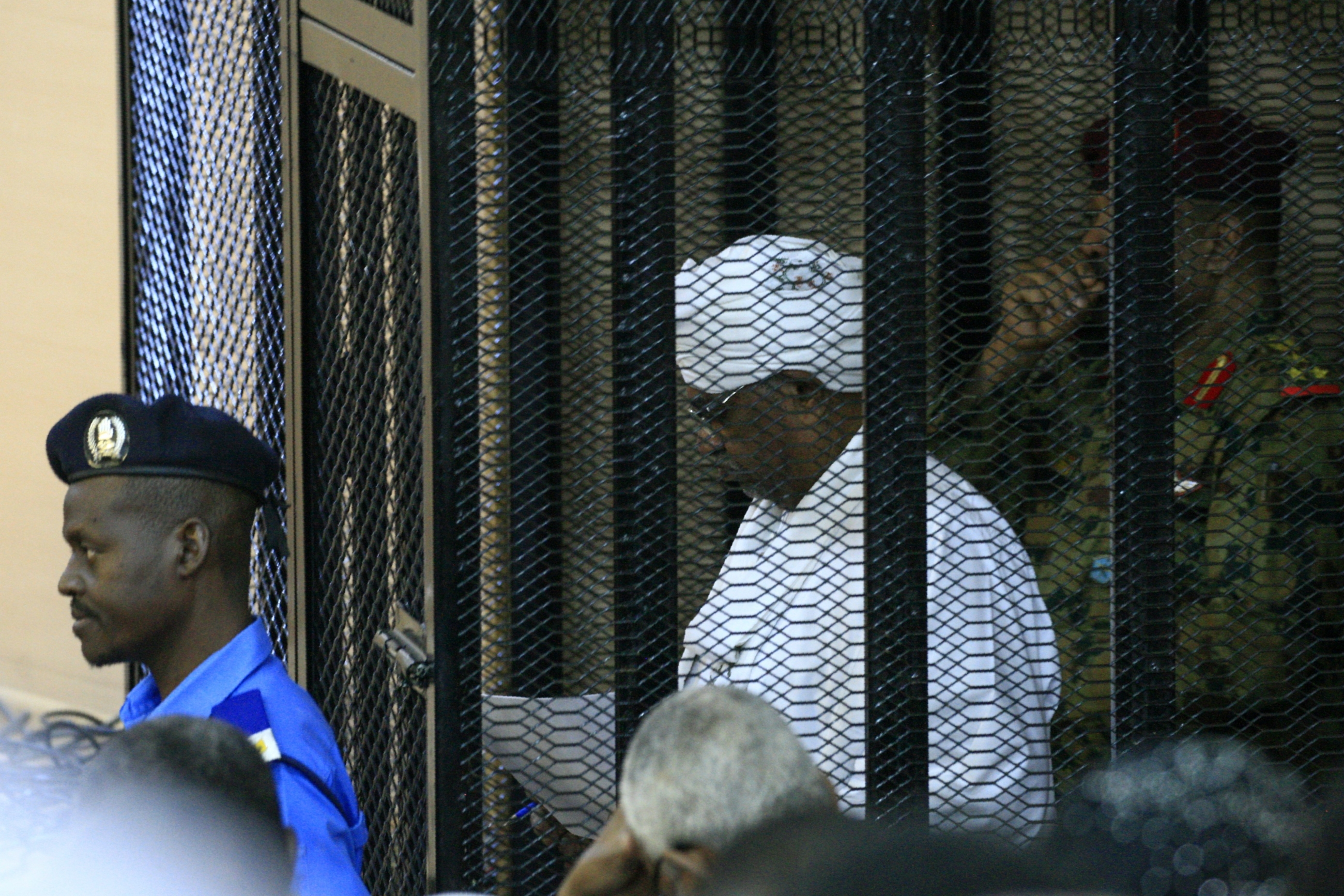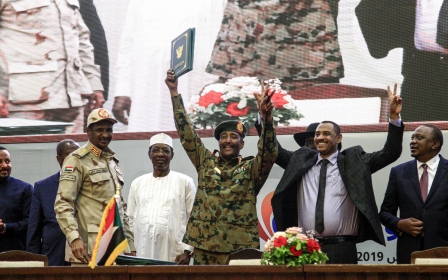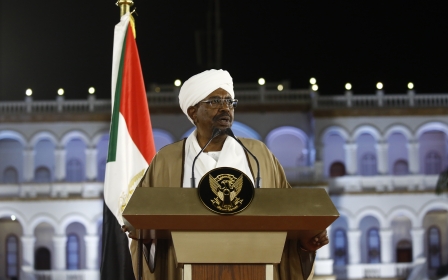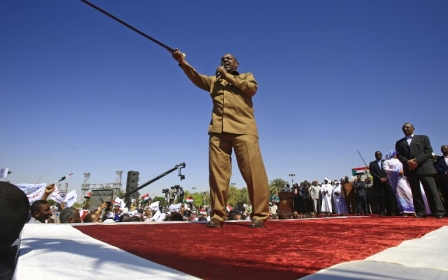Sudan's Bashir 'took millions in cash from Saudi crown prince', corruption trial hears

Former Sudanese President Omar al-Bashir admitted taking $90m in cash from Saudi Arabia's rulers, including Crown Prince Mohammed bin Salman, a court heard on Monday as the ousted autocrat's corruption trial began.
Police Brigadier Ahmed Ali, a detective working on the corruption case, told a Khartoum court that Bashir said part of the money was "delivered by some of Mohammed bin Salman's envoys".
Bashir appeared in court amid heavy security for the first time since 16 June and is accused of “corruption, illicit possession of foreign currency and accepting gifts illegally”.
Inside the courtroom, the toppled autocrat was seated in a metal cage, unshaven and wore a traditional white gown, or thobe.
His relatives present during the trial chanted “Allahu Akbar” (God is great), to which he responded with the same. The next session of proceedings are scheduled for Saturday.
Ahmed Ali said around $7.8m was found at the deposed president’s house. The detective said Bashir claimed the money was part of $25m sent to him by the Saudi crown prince “to be used outside of the state budget”.
Bashir also admitted that he had earlier received two payments from Saudi’s King Abdullah for $35m and $30m which he had spent, according to the investigations.
The investigator said Bashir had also taken money from UAE President Khaled bin Zayed.
Bashir's lawyer, Ahmed Ibrahim al-Tahir, said his client was innocent of corruption.
"We are very confident that our client is not guilty and the court will drop this charge quickly," he said.
Ousted president
The former president, who swept to power in a coup in 1989, was deposed following months of protests and is being held in the capital's Kober prison.
In April, Lieutenant General Abdel Fattah al-Burhan, who heads the military council currently ruling Sudan, said more than $113m worth of cash in three currencies were seized from Bashir's residence.
Bashir falls foul of laws he himself imposed when he issued a decree making it illegal to possess more than $5,000 in foreign currency during a state of emergency.
Sudan suffered high rates of corruption during his rule, ranking 172 out of 180 countries in Transparency International's 2018 Corruption Perceptions Index.
'We are very confident that our client is not guilty and the court will drop this charge quickly'
- Ahmed Ibrahim al-Tahir, Bashir's lawyer
In an effort to quell protests that erupted against his rule in December, Bashir imposed a nationwide state of emergency on 22 February.
In May, the prosecutor general said Bashir had been charged with the killings of protesters during the anti-government demonstrations that eventually led to his downfall.
Protests against Bashir's rule initially erupted on 19 December after his government tripled the price of bread and eventually broadened out to demands for political change after years of corruption and repression.
He was ousted by the army after thousands of demonstrators launched a sit-in outside the military headquarters in central Khartoum from 6 April.
On Saturday, the ruling military council and protesters signed a power-sharing deal, ostensibly paving the way for a civilian-led government after months of unsuccessful talks and a violent crackdown on demonstrators.
The new ruling body was set to take oath on Monday but at the request of the opposition, it has been delayed for 48 hours, according to a spokesman for the military council.
Wanted by the ICC
The International Criminal Court (ICC) has filed more serious charges against Bashir including war crimes, crimes against humanity and genocide for his role in the Darfur war in the early 2000s.
More than 300,000 people were killed and 2.5 million displaced in the conflict while hundreds of thousands still live in impoverished conditions, according to figures released by the United Nations.
'Omar al-Bashir has evaded justice for far too long'
- Joan Nyanyuki, Amnesty International
For years, the ICC has been demanding that Bashir stand trial for his involvement and renewed its call since he was removed from power.
Last week, Amnesty International warned that his corruption trial should not overshadow the more serious charges he faces in The Hague.
"While this trial is a positive step towards accountability for some of his alleged crimes, he remains wanted for heinous crimes committed against the Sudanese people," Amnesty's Joan Nyanyuki said.
"Omar al-Bashir has evaded justice for far too long as the victims of horrific crimes still wait for justice and reparations more than a decade since the ICC issued the first warrant for his arrest."
Mohammed al-Amin in Khartoum contributed to this report.
Middle East Eye delivers independent and unrivalled coverage and analysis of the Middle East, North Africa and beyond. To learn more about republishing this content and the associated fees, please fill out this form. More about MEE can be found here.





